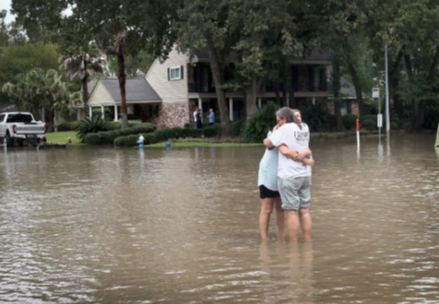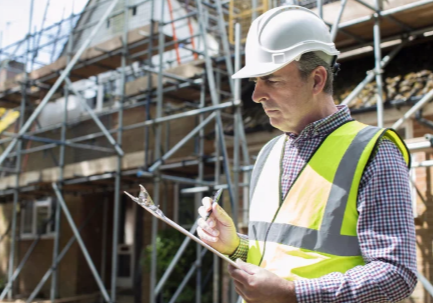How AllCity Handles Natural Disaster Claims Across Florida
Florida’s location and climate make it one of the most hurricane-prone regions in the United States, leaving homeowners and business owners vulnerable to devastating losses each year. Navigating the insurance claims process after a hurricane, flood, or severe storm can be daunting, especially when emotions run high and damages are extensive. We will explore how a reliable claims advocacy process can make the difference between delayed compensation and timely recovery. By focusing on structured assessments, clear documentation, and strategic communication, claim handlers can help policyholders receive fair settlements while reducing the stress of post-disaster recovery.
Coordinating Rapid Response After a Natural Disaster
When a natural disaster strikes in Florida, timing becomes a critical factor in securing fair compensation for damages. The first hours and days after the event are often chaotic, with multiple priorities competing for attention—from personal safety to protecting property from further harm. Effective claims handling begins with immediate on-site evaluations, where adjusters assess the full scope of damage before cleanup or repairs begin. For property owners seeking claims support from AllCity Adjusting Fort Myers, this early step ensures no critical evidence is lost and all damage is properly documented, setting the foundation for a stronger claim outcome.
Insurance companies often rely on their own adjusters, whose assessments may lean toward minimizing payouts, but an independent claim handler works with the policyholder’s interest at the forefront. They coordinate inspections quickly, engage relevant contractors for accurate repair estimates, and prepare a comprehensive claim package. This not only speeds up the process but also helps prevent underpayment issues later. In a state like Florida, where severe weather can damage multiple structures within hours, a prompt and organized response is essential.
Documenting Damage with Precision
Proper documentation is the backbone of a successful insurance claim after a natural disaster. This includes not only photographs and videos of the damage but also detailed written descriptions, itemized repair estimates, and evidence of the property’s pre-loss condition. Many property owners overlook the importance of having “before” records, but such evidence can make a substantial difference in disputed claims. Professionals handling natural disaster claims invest time in thorough inspections, ensuring they capture hidden damages that might not be immediately visible—such as water intrusion behind walls or structural weakening.
In Florida, where flooding, wind-driven rain, and storm surge often occur together, damage can be layered and complex. Documenting each issue separately ensures that the claim reflects the true cost of restoring the property to its original state. This step often includes collaborating with engineers, restoration experts, and contractors to create an undeniable proof package for submission.
Navigating Policy Complexities
Insurance policies often contain dense language, exclusions, and limits that can complicate a claim, particularly after natural disasters. Florida property insurance can have unique clauses for hurricane deductibles, water damage exclusions, or mold remediation coverage, which can easily confuse policyholders. Claim handlers must carefully review the policy, interpret its language in plain terms, and identify applicable provisions that support the claim. They also work to counter misinterpretations by insurers that could reduce payout amounts.
In many cases, policyholders may be unaware that certain types of damage are covered if they can be linked to the initial disaster, even if they appeared days or weeks later. Understanding these nuances helps ensure that no legitimate expense is overlooked. In addition, adjusters remain vigilant for situations where insurance carriers might attempt to categorize damages under exclusions, thereby reducing settlement offers. This careful navigation of policy terms is one of the most important steps in protecting a property owner’s financial recovery.
Managing Communication with Insurance Companies
Clear, consistent, and strategic communication with insurers is key to achieving a favorable claim resolution. After a natural disaster, insurance companies may be inundated with claims, leading to delays or incomplete assessments. Having a representative manage these interactions ensures that deadlines are met, required documents are submitted on time, and all questions are addressed promptly. Communication is not just about sending updates—it’s also about maintaining a clear narrative that supports the claim.
Each email, phone call, or written statement contributes to the file, and inconsistencies can be used by insurers to challenge parts of the claim. By controlling the flow of information, claim advocates help protect the integrity of the case while reducing the emotional burden on the property owner. This professional distance also prevents missteps, such as casual remarks that could be interpreted as admissions of partial liability or reduced damage severity.
Read Also: The Secret Tech Inside Vehicle Anti Theft Devices
Addressing Disputes and Delays
Disputes over coverage amounts, repair scope, or excluded damages are common after large-scale natural disasters, especially in Florida where storm-related claims can be financially significant. When disagreements arise, having a strong advocate can be the difference between acceptance and prolonged conflict. Claims handlers are prepared to present detailed evidence, negotiate with insurance representatives, and, if necessary, escalate the matter through appraisal or mediation.
Delays are another frequent challenge, as insurers may take longer to process high volumes of claims. To counter this, advocates maintain regular follow-ups and press for timely responses, ensuring that the file doesn’t get pushed aside. They also track payment timelines to confirm that approved amounts are disbursed without unnecessary holdups. This persistence is vital for property owners who are already facing the financial strain of repairs and temporary living arrangements. By resolving disputes and pushing past bureaucratic slowdowns, claim handlers help restore a sense of stability sooner.
Handling natural disaster claims in Florida requires a combination of speed, precision, and persistence. Disasters such as hurricanes, floods, and tropical storms can leave lasting damage, but the right claims process ensures that no legitimate loss is left uncompensated. AllCity’s approach demonstrates the value of having a knowledgeable advocate during these challenging times, one who can navigate complex insurance systems while keeping the client’s needs front and center. By addressing disputes, avoiding delays, and supporting recovery beyond the claim, property owners can rebuild with confidence, knowing they have someone committed to securing their rightful settlement.






